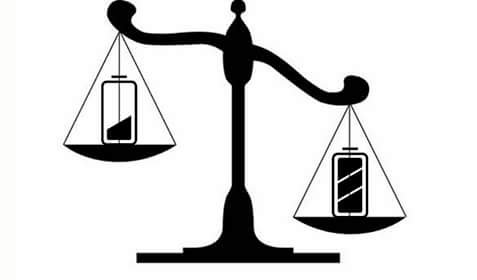
Not crazy, it's really right. Let's just mention some of the questions that awakened in your mind.
The battery is actually stored on the closed system. Neither something goes out of it nor is it inserted from the outside. Battery is made of certain materials, whether it is full charge or not. There is no change in the total substance. But how does weight gain?
Now try to answer your question - it's a misconception that the battery is an electron pot. No, it's not an electron. Not that the flower is full of electrons when the charge is charged, and it is empty when the charge is over. Rather, the battery is the energy receptacle, which comes through the formation of chemical bonds in different ions, which flows through various circuits connected to the electricity produced from it. The battery is not less than the total component.
Now, if there is no change in the total content, how does weight increase?
Come on, come up to the real words. From Einstein's breakthrough General Relativity, we all know that an equation of energy
E = mc ^ 2
Where a broad friendship between the mass and the energy has been talked about. If you charge a battery, it gets energized, it is understandable by now.
Imagine, a battery of 85 KWh (which is used in an electric vehicle), the amount of total energy in it
85 KWh = 85 * 1000 * 3600 Joule = 3.06 * 10 ^ 8 Joule
Now, 3.06 * 10 ^ 8 = mc ^ 2 [c = velocity of light]
So, m = 3.4 * 10-9 or 3.4 microgram.
Whose weight is almost equal to one sand.
What does that mean? When you fully charge an electric racing car battery, its weight will increase as well as the weight of just one sand.
Stop a little, but it's time to mass. Calculate the weight by multiplying it by g. And why sit still? Now start the calculation of the amount of weight on your mobile phone.
Really, Thanks for sharing.
Correct